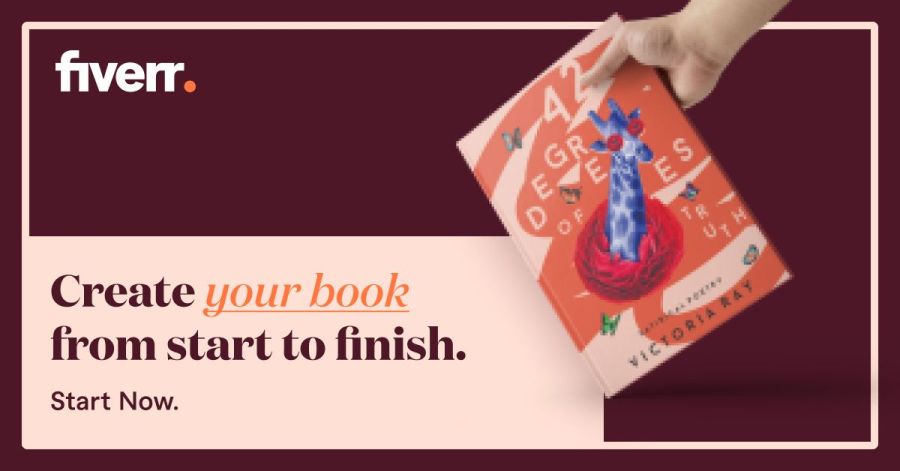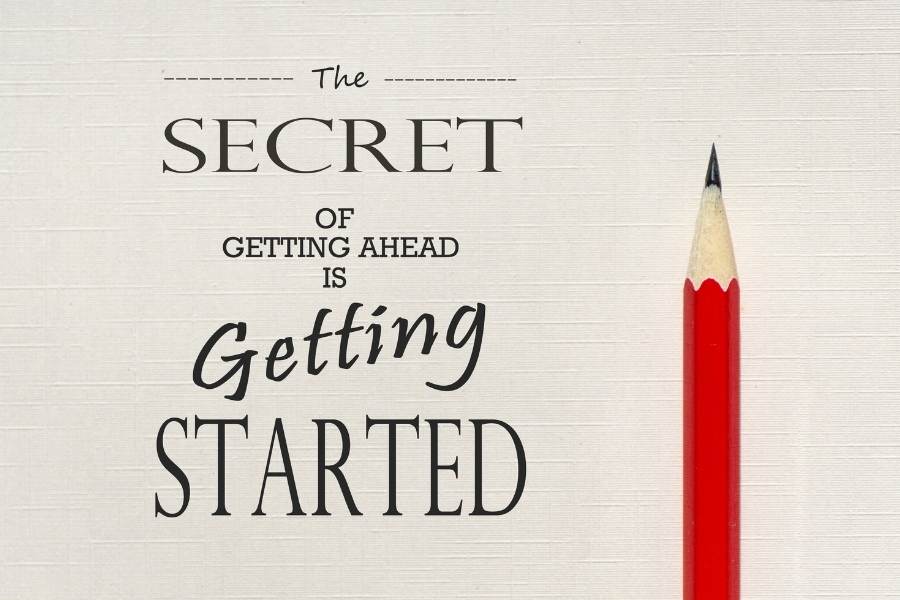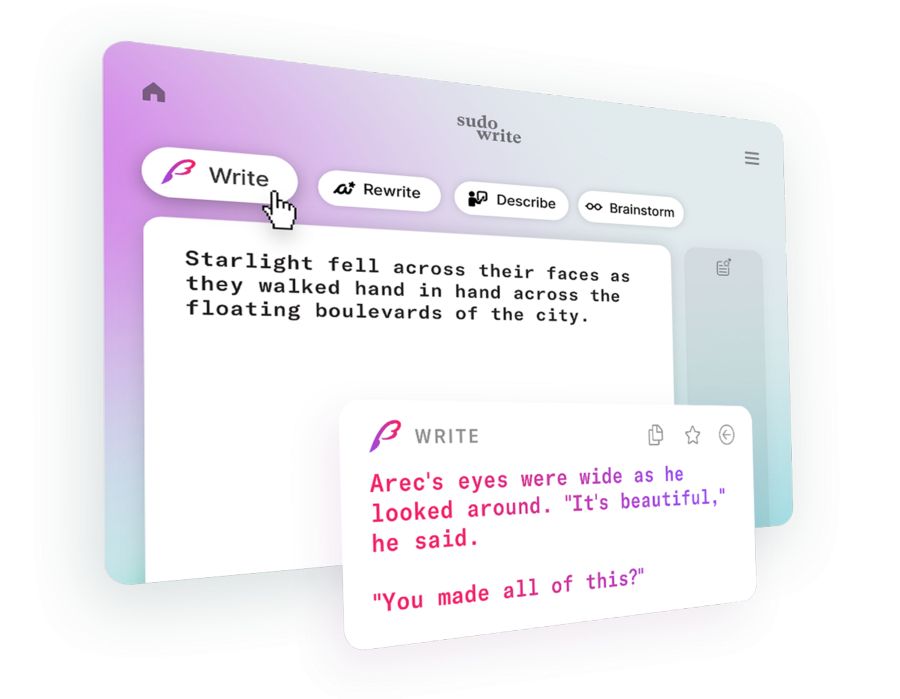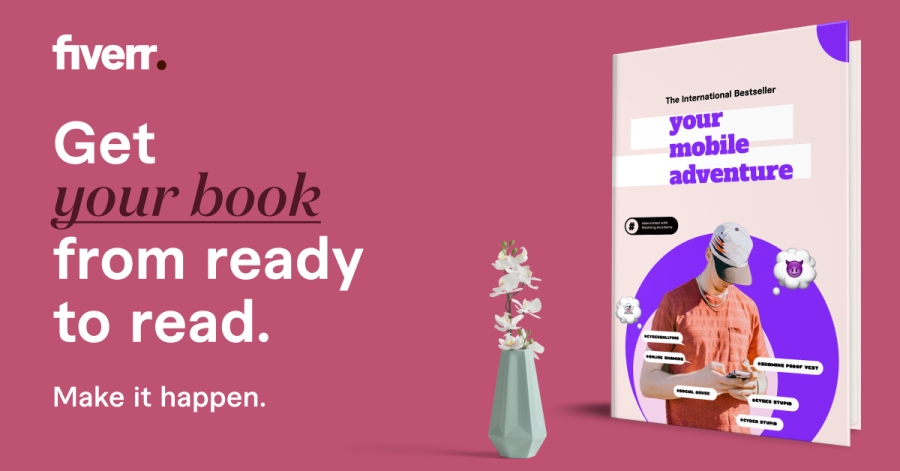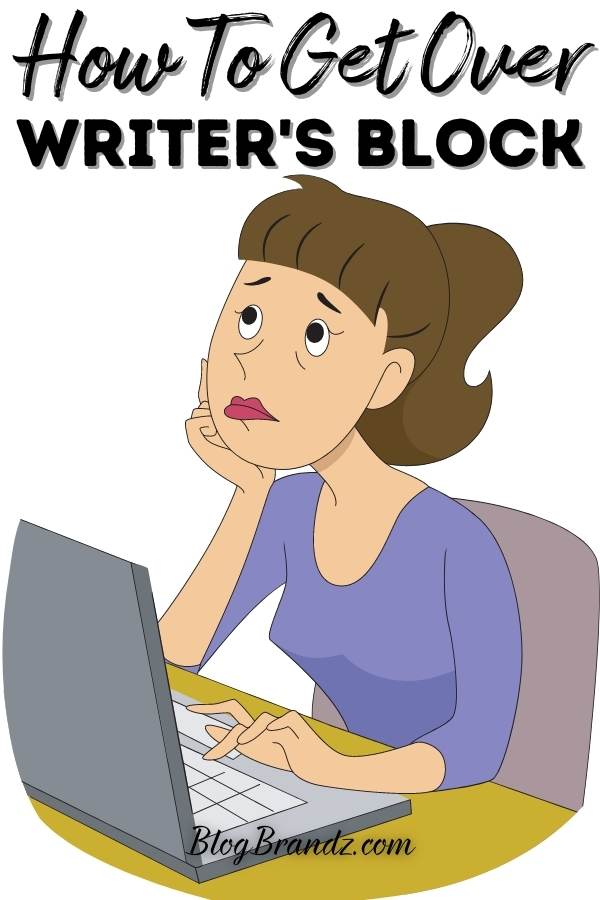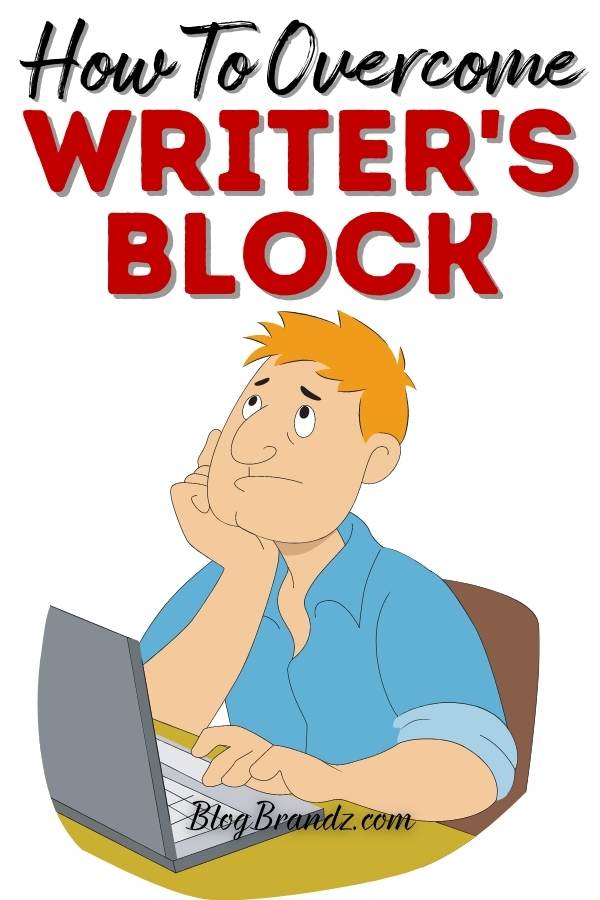Help, I have writer’s block! Are you dealing with writer’s block? Get practical tips for overcoming writer’s block and letting the words flow again.
Are you a writer dealing with the dreaded specter of writer’s block, meaning the inability to find inspiration for your writing? Most professional writers can easily identify with this well-known phenomenon that has plagued just about every one of us at least once in our lives.
Whether you’re an author or a content writer, writer’s block is one of those mysterious ailments blamed for late assignments, missed deadlines, and failed dreams.
But in fact, what is commonly referred to as writer’s block or author’s block, is often caused by one of three problems – lack of preparation, lack of training, and lack of development.
- Lack of preparation is often caused by not having an individual writing process to leverage your writing strengths and help overcome your writing weaknesses.
- Lack of training is about training your writing muscles – you need to warm up and work out on a regular schedule to keep them in top condition.
- Lack of development simply means that your particular idea may need more time to marinate or perhaps you’re not ready to tackle that particular topic at the time.
How To Overcome & Deal with Writer’s Block
All professional writers develop their own ways to overcome writer’s block. Here are some practical tips for getting past writer’s block:
#1. Do the research
Don’t confuse lack of preparation – the basic step of gathering enough material to complete your writing task – with writer’s block. Before sitting down to write, prepare for a few hours or days, depending on the size of the project.
If you have no idea of what to say on the subject, you don’t have writer’s block, you have a lack of knowledge problem. If you have the facts in front of you and still do not know what to say then you have writer’s block.
“If you have the facts in front of you and still do not know what to say then you have writer’s block.”
Writing requires research and learning. Part of your writer’s skill set is to learn how to use search engines to search for information.
With a world of knowledge at our fingertips, there’s no excuse for lack of knowledge. People who claim that they don’t know how to do something are people who simply haven’t tried.
When you sit down to write, make sure that all of your key background materials are close at hand. Read over any background material you have so that it is fresh in your mind.
Carefully mark important points with a yellow highlighter and then review them all before you start to write. This will allow you to quickly refer to them without interrupting your writing flow once you get going.
Another tip I sometimes use to find the words is to use Private Label Rights (PLR) content as the starting point for an article. Of course, it’s important to rewrite the PLR content in your own words and make it a unique piece of content.
But it can be especially useful when you’re writing on a topic that you don’t know much about, as it can help you overcome the initial hump and make a start.
Another way to deal with writer’s block is by watching television or reading, which I often use to spark inspiration. “Reading is the creative center of a writer’s life,” said Stephen King on writer’s block.
“Reading is the creative centre of a writer’s life.” ~ Stephen King
#2. Just write anything
Genuine writer’s block comes when you just don’t know how to say it. You have the information and a basic outline, yet you’re not satisfied with the tone, cadence, or anecdote provided. It just doesn’t feel right.
You can’t tie your ideas together into one cohesive product that supports the underlying theme you are trying to convey. What do you do then? My favorite remedy for getting over writer’s block is to just write anything.
As Ernest Hemingway said, “The first draft of anything is shit.” In fact, you should print out this quote and stick it on your wall. Or write it on a Post-It and stick it to your computer screen.
“The first draft of anything is shit.” ~ Ernest Hemingway.
Far too many would-be writers spend too much time and energy finding the right computer, program, paper, pen, location, mood-setting music, and the like before they can begin writing.
Instead, that time and energy would be much better spent on simply getting down to the business of writing. Give yourself permission to write garbage and focus on simply creating a really rough draft.
Once you have prepared mentally and done your homework you are ready to write. Just start writing any old thing that comes to mind. Go with the flow. You’ll get into a rhythm in no time, and the words will just keep flowing.
Don’t worry about making your first draft perfect. The critical thing is to write those thoughts down as your mind dictates them to you. Once you stop worrying over all that’s wrong with your writing, the words will begin to flow again.
Complete your assignment as if it were due today, and walk away. Then leave the problem to rattle around in your brain for a while and edit it later.
In her book, The Artist’s Way, Julia Cameron recommends doing Morning Pages – three pages of longhand, stream-of-consciousness therapeutic journaling habit, done first thing in the morning.
This practice is part of her life-changing twelve-week program and millions of people have found an invaluable guide to unblocking their creativity and living the artist’s life.
The Tapping into Creativity series by EFT coach, Brad Yates, follows the 12-week creative recovery course in The Artist’s Way.
Creative Writing Exercises:
- Stream of Consciousness Writing: Set a timer for 10 minutes and write whatever comes to mind without worrying about structure or coherence. This can help break through mental barriers and unlock creative flow.
- Word Association: Start with a random word and jot down everything that comes to mind. Use these associations as prompts to build a scene, character, or conflict.
- Free Writing: Set aside 15 minutes to write without any specific goal. Let your thoughts flow freely, and don’t worry about grammar or structure. This can help loosen up your creativity.
- Visual Inspiration: Browse through images online or in magazines and choose one that resonates with you. Write a scene or story inspired by the visual elements, allowing your imagination to flow freely.
- Music Inspiration: Listen to a piece of music and let it inspire a scene or evoke emotions. Write based on the mood the music creates, allowing your writing to be guided by the rhythm and tone.
#3. Take a shower or do chores
According to a 2014 study conducted by cognitive psychologist Scott Barry Kaufman, and commissioned by German bathroom and kitchen fixtures company, Hansgrohe, 72 percent of people get creative ideas while in the shower.
In fact, the study revealed that people aged 18 to 34 actually had a shower with the specific purpose of dreaming up a new idea, for fresh thinking, or for problem-solving. So, go take a shower and let the ideas flow.
I find that stepping away and doing something else works better than doing another mental task, like answering emails. Some writers may find exercising, doing the laundry, or washing dishes to be a useful distraction.
Do something totally unrelated that requires you to pay some attention to your new task – a household chore, a daily self-care practice, or running an errand.
Sometimes more than one distraction is required. On a big problem, it might take a week of chores. A change in environment can stimulate creativity.
Move to a different location to write, whether it’s a cafe, park, or a different room in your home. Take a walk or do something physical away from your office or desk. Take your children to the park for an hour or two.
Your subconscious mind will be working away on the problem while you’re doing other things and at some time during your chore or activity, the answers will pop into your head, often when you least expect them.
If you’ve researched the topic well, you have all the material that your subconscious mind needs so it can do its job in the background while you’re doing other things.
Inspiration comes to us all the time. That is how our brains work. Whether you believe the answer has come from your brain or from the cosmos the answer is always available to us.
We just need to distract our minds from the noise that’s interfering with our ability to hear the inspiration. Once you’ve taken your focus away from the problem, your brain can finally deliver the answer unimpeded.
Most writers are working on more than one project at a time. Leaving one assignment and starting another can also help spark the answer to the previous writing problem.
#4. Start a dream journal or meditate
As someone with over two decades of professional writing, editing, and publishing experience I use several creativity-boosting ideas for getting over writer’s block and letting the words flow again.
In particular, I’ve found Lucid Dreaming to be a powerful tool to gain clarity and answers, and spark creativity. I received several ideas for short stories, such as The Nursery and Ganymede, in lucid dreams.
Dreams often contain unconventional and imaginative elements that can inspire your writing. A good creative writing exercise is to start writing a dream journal and write about dreams you’ve had recently or create a dreamlike scenario.
Richard Bach used meditation techniques, like the Silva Centering Meditation to boost creativity and complete his phenomenal bestselling book, Jonathan Livingston Seagull.
Or you can keep your Smartphone handy and record your ideas on the go using voice recording software or a speech-to-text app. You need to get it down, because the answer may be fleeting, or just a partial concept that needs development.
The Creativity Workbook for Coaches and Creatives is a practical workbook, where global creativity coaches share over 50 of the best creativity exercises to meet the demands of the creative process, personality, and life.
#5. Build your writing muscles
Sometimes getting through writer’s block can be achieved by exercising and challenging your writing muscles with writing prompts and exercises. In other cases, defeating writer’s block can be achieved by simply changing the pace of your writing or your subject matter.
Writer’s block can often come from a fear of the unknown coupled with a fear of failure or the fear of looking foolish. Many new writers suffer from imposter syndrome and fear they will come across as incompetent idiots who don’t know what they’re talking about.
On the other hand, trained writers who have gone through freelance writer training find breaking through writer’s block easier, because they have the confidence, tools, and techniques to help their writing flow.
For most professional writers, writing is a practice, not a skill. To quote Dan Poynter, “If you wait for inspiration to write you’re not a writer, you’re a waiter.” The more you practice writing, the more easily your writing will flow.
“If you wait for inspiration to write you’re not a writer, you’re a waiter.” ~ Dan Poynter
Here’s a list of creative writing activities and exercises designed to help build your writing muscles:
- Character Interview: Conduct an imaginary interview with one of your characters. Ask them about their background, motivations, and the challenges they face. This exercise can spark new ideas and insights.
- Plot Twist Exercise: Take a scene or chapter from your current project and brainstorm three unexpected plot twists. This exercise can introduce new directions and revive your enthusiasm.
- Dialogue Only: Write a scene using only dialogue. Focusing on conversations can help you explore your characters’ voices and move the story forward.
- Flash Fiction Challenge: Set a word limit (e.g., 300 words) and challenge yourself to write a complete story within that constraint. The limitation can spur creativity.
- Reinterpret a Classic: Take a scene from a classic novel and rewrite it in a different genre or period. This exercise encourages creativity and allows you to explore new perspectives.
- Write a Letter: Write a letter to yourself or to a fictional character discussing your writing challenges, aspirations, and the story you want to tell. This reflective exercise can help clarify your thoughts.
- Write a Letter to a Writer’s Block: Personify your writer’s block and write a letter expressing your frustrations and declaring your intention to overcome it. This can be a cathartic exercise.
#6. Use a writing template
Many new writers believe that only book writers need help with breaking writer’s block, but web content writers can face it as well. Brainstorming and creating an outline can help in curing writer’s block.
Whether you’re writing articles for your own blog or for a client, start with a short brainstorming session. Write down the article titles you need to write and then list a few points that you want to cover.
I find this helps me a great deal when writing a list post. You can put together a simple point-form list of all of the key points you want to cover, and then organize them in the order in which you are going to cover them.
Surfer’s Free AI Article Outline Generator is an easy-to-use article outline generator that relies on AI to help you generate an outline with unique paragraphs in just 3 simple steps.
If you start writing blog posts with these free blog post templates from Hubspot, you’ll save time and will never have to start the blogging process from scratch.
All you need to do is fill in the blanks of these 6 popular blog topic templates to get you past writer’s block:
- The “How-To” Post
- The List-Based Post
- The “What Is” Post
- The Pillar Page Post
- The Newsjacking Post
- The Infographic Post
SEMRush is another tool that offers SEO content templates, an SEO writing assistant, and several tools to help you research topics for your content and get out of writer’s block.
When you have a general outline to follow, you’re less likely to experience writer’s block in the middle of your writing. For content writers, this is the ultimate secret to overcoming writer’s block.
#7. Use AI content writing tools
AI content writing tools can be extremely beneficial for those who struggle with writing. They can help to organize thoughts and ideas, making it easier to produce a well-written piece of work.
In addition, AI writer tools can save a lot of time and effort, as they can automatically generate the first draft of a document. When writing SEO copy, I find it helpful to use AI SEO content writing tools to get ideas and even create an actual outline of the type of document that I need to write.
In addition to original blog articles, social media posts, and website copy, you can use creative writing AI tools such as AI story writer and AI poem generator tools to write creative content like a story or a poem.
The Sudowrite AI writes poetry as well as stories and is immensely useful when you’re stuck for inspiration. Start by giving this story-writing AI a short summary of your story in several sentences. It looks at the writing prompt you enter and keeps going.
The key to co-writing effectively with AI writer tools is to be very strategic about the writing prompts that you feed into the program. The right prompts and approaches will help ensure that the AI gives you the most useful text that you can edit and modify for your purposes.
This free list of ChatGPT prompts to overcome writer’s block will help you harness its capabilities, provide practical insights for elevating your craft, and infuse your work with fresh, inventive perspectives.
In this ChatGPT writing course, you’ll learn all about this AI tool and how to use it to create blog posts, write sales copy, and create a writing business using AI-written copy.
#8. Create a conducive work environment
Another great tip for beating writer’s block is to create a work environment that is comfortable for you and ideal for you to work in. If you have kids and cannot work from home, you could consider writing in a coffee shop the way J. K. Rowling did when she wrote the Harry Potter books.
Some writers may find working with background noise, like the television or radio, to be a distraction, but crafting a creative corner may prove comforting and inspirational in getting past writer’s block.
If the weather is nice and you can go outdoors to write, you may find the change of environment inspirational and calming, which may reduce or completely eliminate your chances of experiencing writer’s block.
This Free Masterclass with Vishen Lakhiani and Nir Eyal – one of the world’s leading experts in habit formation and focus, will help you become immune to overwhelm and develop powerful focus.
You’ll discover how to rise above distractions, own your time, and regain your peak focus and performance, no matter what’s going on inside you or around you.
#9. Get in a good mind space
Finally, it is important to know when to ask for help. You can reach out to a book writing coach like Lisa Tener who offers award-winning book writing and creativity courses.
A writing coach can you break through self-doubt, unlock your unique voice as a writer, write a high-quality, unique book quickly, and stay connected to your inspiration throughout your book-writing journey.
You’ll learn how to boost your creativity with creativity exercises and energy practices so you can transform the way you think, feel, and create and reclaim your creative flow and artistic joy.
An important part of creative expression is getting through the blocks. Depression and writer’s block often go together and it’s hard to be creative and get things done when you’re in a dark place.
Amy B. Scher’s program on How to Shift from Depression to Creative Expression is another program that will help you get through the blocks and learn how to boost your creativity with creativity exercises and energy practices.
If severe writer’s block has hindered your ability to write and make money, you could even consider outsourcing your writing work to a freelance writer on Fiverr until you’ve succeeded in beating writer’s block.
These things to help with combating writer’s block will work for many writers, but they may not work for everyone. Every writer has experienced writer’s block from time to time but you don’t have to let it stop you.
Remember, the key is to engage in writing without the pressure of perfection. The creative writing exercises and activities above are meant to stimulate your creativity and encourage you to enjoy the process of writing.
Avoiding writer’s block entirely may not be possible, but working out an effective strategy for dealing with it when it strikes is one of the most important skills a professional writer can develop.
Whether you’ve been dealing with writer’s block for years, months, weeks, or days, I hope these writer’s block solutions will help you overcome writer’s block and let your writing flow again.
Writing tips and tools
- The art of creative thinking: How to enhance creativity
- How to learn lucid dreaming for creativity & personal growth
- How to learn creative writing skills and be a better writer
- 10 emotional self-care practices for writers & creatives
- 7 habits of the most successful writers & famous authors
- How to become a book writer without writing a book
- 10 steps to write and publish a low-content book
- How to write a story using AI story generator software
- Best AI content generator tools for writing AI content
- 16 types of writing skills and how to learn them
- 12 fast writing tips: Learn how to write fast & write well
- Blog writing prompts to find the best blog topics
- How to write the perfect nonfiction book proposal that sells
© 2021 – 2024, Priya Florence Shah. All rights reserved.
Priya Florence Shah is a bestselling author and an award-winning blogger. Check out Devi2Diva, her book on emotional self-care for women. In her spare time, Priya writes science-fiction novels and poetry and chills with her two-legged and four-legged kids.
Discover more from Business & Branding Tips
Subscribe to get the latest posts sent to your email.


